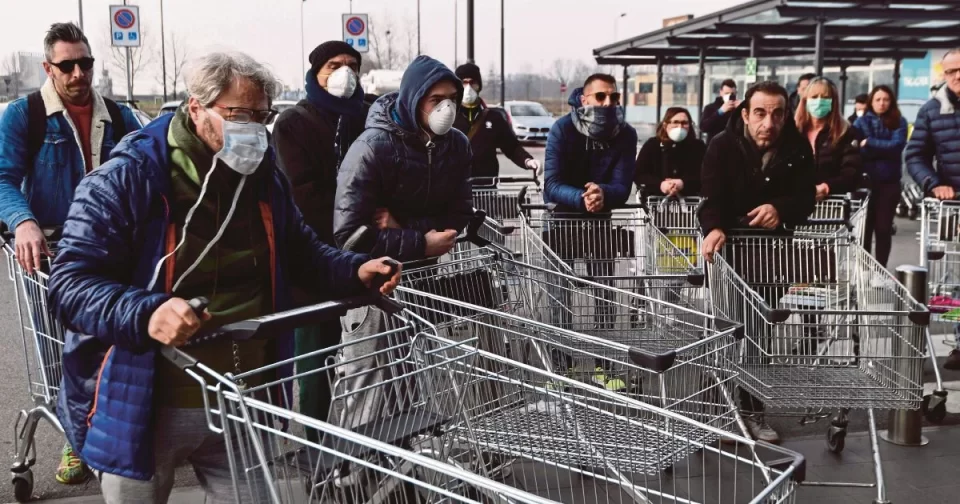
Using the oven to cook food and iron clothes is a luxury that Europeans who have taken to showers in the workplace to save energy may give up, but the bills continue to rise.
LONDON – With gas and electricity prices on the rise, millions of people in Europe are now spending a record amount of their income on energy, data shows.
In the eastern English town of Grimsby, Philip Keatley didn’t turn on his cooling fan at home as Britain was experiencing a record heat wave this summer.
A look at his bank account showed that he could not afford cooling.
“The cost of living has gone up, yet I am still expected to live on the money I made before there was a crisis… I now have two options, either I can heat up or eat.” This is how Kitty summed up his suffering and the suffering of millions of citizens in England.
Citizens in other European countries are also taking voluntary measures to reduce consumption as gas, electricity and fuel prices rise due to the war in Ukraine, sanctions against Russia and the aftermath of the coronavirus pandemic.
No solution in sight
The benchmark European gas price has risen by 550 percent in the past 12 months. The regulator, Ofgem, said the cost of energy for British consumers would rise by 80% from October, taking average annual household bills to 3,549 pounds ($4,188).
European governments were quick to provide aid, but the data show that the aid did not make much difference to families.
This winter, Britons will spend an average of at least 10 percent of their household income on gas, electricity and other fuels for heating, as well as on domestic vehicle fuels, especially petrol and diesel, double the amount in 2021, according to official data.
This makes the current energy crisis even more severe than those of the 1970s and 1980s. An oil embargo imposed by an oil producer and the Iranian revolution of 1979 caused blackouts and long queues at gas stations in the West. At the height of that crisis (in 1982), Britons in the United Kingdom spent 9.3 percent of their income on energy spending.
British charity National Energy Action estimates that 8.5 million households in the UK may be in fuel poverty after October when the UK cap is raised, up from 4.5 million last October.
A family is defined as living in fuel poverty if they are on a low income and need to spend 10 percent or more of their income on energy, according to NEA and other British charities. The definition is used informally in other European countries.
“The increase in energy bills we are seeing is absolutely unprecedented,” said Peter Smith, director of the association.
“We think those historical trends of low-income households spending disproportionately more of their income on energy are still very clear,” he added.
food or heating
Kitty lost his job as councilor in April and lives on 600 pounds ($706.44) a month from Social Security. “Half of that goes to rent,” he said, while the rest barely covers essentials.
He now eats one meal a day, and despite cutting energy consumption to a minimum, he spends more than 15 percent of his income on energy bills.
A study by the Financial Justice Fund showed that a third of households in the UK have cut back on their stoves and ovens, a third have cut back the number of showers they used to take until recently, and half have refused to lower the temperature in their homes.
Via alarab-co-uk

